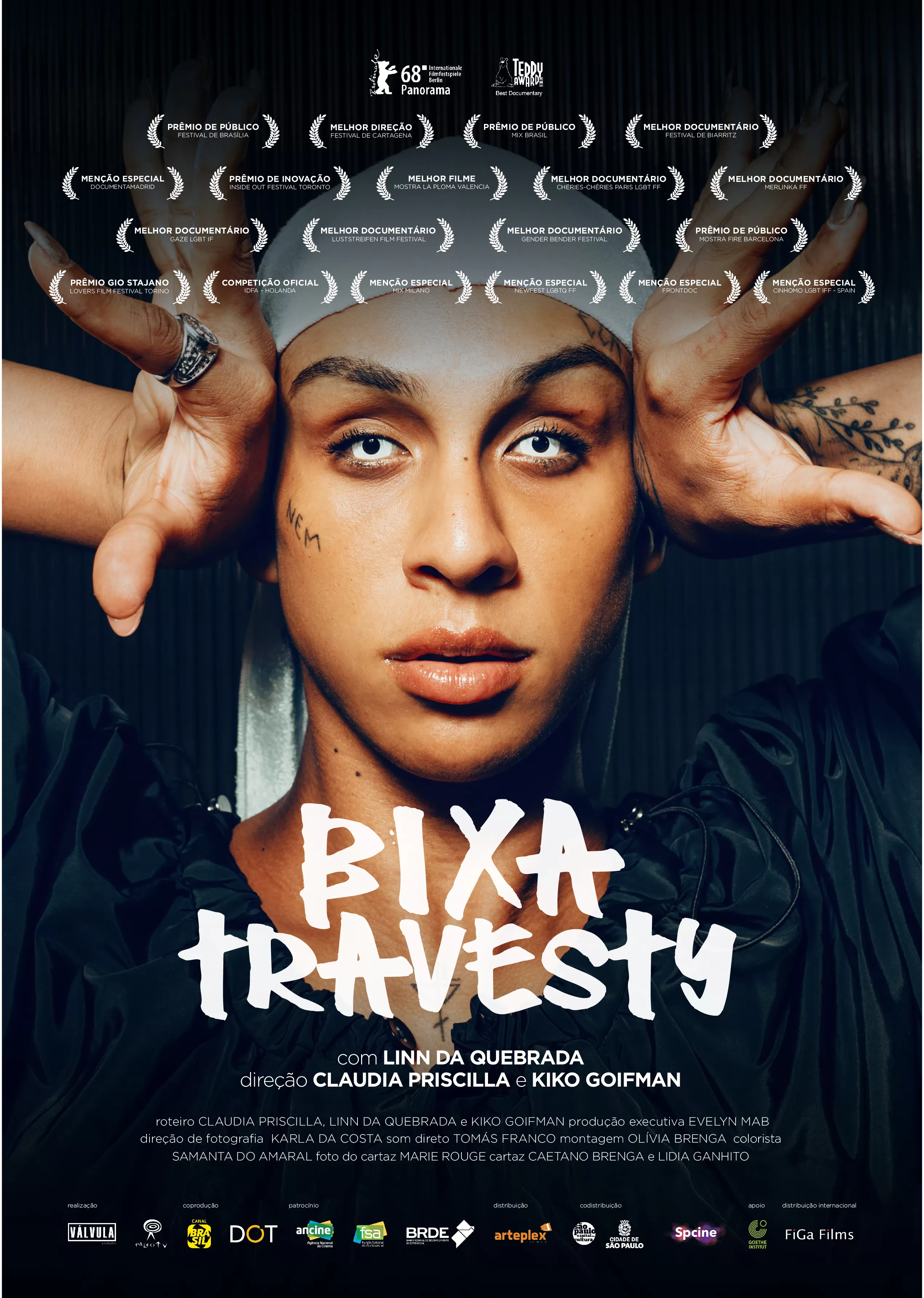From the very first frame, “Bixa Travesty” slams you into the vivid, pulsating world of Linn da Quebrada—a fierce Brazilian transsexual singer carving her path through the gritty edges of São Paulo’s favelas. This documentary isn’t just a biography; it feels like a raw, unedited scream against the suffocating weight of racism, transphobia, and poverty. Listening to her funk beats, you almost feel the power of a blazing gunshot shattering the glass ceilings of machismo. Linn bursts through stereotypes not with timid steps but with a rebellious dance, challenging society’s narrow cages with every lyric and gesture.
What struck me most is how the film peels back layers beyond Linn’s glittering persona on stage. You catch glimpses of her intimate moments—laughing with friends, sharing heated debates with her mother over that romanticized myth of poverty clinging to their community like stubborn shadows. It’s in these candid exchanges that her humanity shines brightest, reminding me how often we paint resilience with simplistic brushes, missing the messy, unfiltered truth underneath. The documentary doesn’t follow a neat storyline or a polished narrative arc; instead, it feels like peeling an onion—sometimes tear-inducing, sometimes overwhelming, but always authentically raw. You come away understanding that Linn’s fight is not only about gender identity but also the brutal crossroads where class, race, and societal expectations collide.

I won’t lie—at times, the repetitive cycle of musical performances tested my patience. While her onstage energy is undeniably electrifying, sitting through back-to-back numbers felt like being stuck in a loop that dulled the emotional crescendo I was craving. And those moments when the film drifts into prolonged, almost voyeuristic scenes—like the awkwardly intimate shower conversation with her mom—left me scratching my head. Was this shock value? An honest peek behind closed doors? It’s hard to tell, but it certainly left me uneasy, questioning the fine line between vulnerability and provocation.
Still, Linn is unmistakably the heart and soul driving this story. Her fierce intellect and unfiltered rhetoric, delivered through staged radio interviews and candid dialogues, inject a gritty realism that cuts through the politeness often coating discussions about feminism and trans identity. I found myself drawn in by how she doesn’t just preach; she embodies the tension between celebrity and economic hardship, reminding us that not all who shine are sheltered from the harshness of everyday life.
At just over an hour, “Bixa Travesty” might not wrap up with the emotional punch or a tidy conclusion you hope for. Instead, it leaves you with a collage of moments—some striking, others frustrating—that together provoke a deeper reflection. Who is Linn da Quebrada? She’s a whirlwind of contradictions and courage, a beacon screaming for visibility amid shadows of prejudice. Watching her, I felt both inspired and unsettled, reminded that true change often comes wrapped in discomfort and relentless honesty. This is not a feel-good documentary; it’s a necessary one, a loud call to reconsider the stories we tell about identity, power, and survival in a world that often refuses to see us whole.


What hit me hardest was Linn’s raw conversations with her mom—those debates about poverty myths probably resonate with so many families. The film’s refusal to sugarcoat her reality makes those everyday struggles feel revolutionary in their honesty.